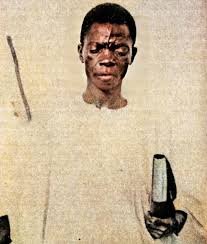
In I Samuel 28, the Bible reports that Samuel was distressed because he no longer heard from God. The Philistines were closing in on him, and he had no instruction to save the nation. This happened after the death of Samuel, his mentor and prophet. It is good to recall that Saul had already fallen out with Samuel before Samuel’s death.
I Samuel 15;3.
And Samuel came no more to see Saul until the day of his death: nevertheless, Samuel mourned for Saul
Even after the prophet Samuel’s death, Saul was unconcerned about his inability to hear from God until he faced an attack from the Philistines. We should not treat God like a first aid kit, only reaching out to Him in times of trouble. Instead, our relationship with God should be as vital and constant as our need for oxygen. Just as we rely on oxygen for survival (John 15:51), we should depend on our daily connection with God.
I Samuel 28:6
And when Saul went for directions to the Lord, the Lord gave him no answer, by a dream or by the Urim or by the prophets.
King Saul against the Sorcerers
King Saul’s reign was marked by actions that displeased God, particularly in the incident with the Amalekites. Despite clear instructions from the prophet Samuel to destroy them, Saul spared their king, Agag, and kept the best livestock for himself. This disobedience demonstrated his self-interest and disregard for divine authority.
Saul showed positive qualities at times, particularly in his opposition to necromancers and sorcery, which were condemned by Israelite law. His strong stance demonstrated a commitment to certain moral standards dictated by his faith. However, the King went to those he outlawed when he could not hear God. This means that King Saul will adhere to godly values as long as they do not oppose his interests.
However, when Saul could no longer hear from God, he abandoned his faith and sought help from the very individuals he had once condemned. This shift indicates that he followed spiritual principles only when they aligned with his needs. When those needs conflicted with his previous beliefs, he chose convenience over conviction, revealing a fundamental inconsistency in his character and commitment to spiritual values.
I Samuel 28:3
And Saul had put away from the land all those who had control of spirits and who made use of secret arts.
King Saul’s Inner Circle
I Samuel 28:7
Then Saul said to his servants, Get me a woman who has control of a spirit so that I may go to her and get directions. And his servants said to him, There is such a woman at En-dor.
The servants of King Saul promptly responded to their master’s request for a woman who could control a spirit. None of them opposed the King. They might have been unable to oppose the king’s request because they might have feared what he could do. My shock was that they suggested the woman at En-dor immediately. I want to assume that they visited the woman undercover, even when she was outlawed.
If you are an assistant to a man or woman of God, your level of commitment must align with theirs, and theirs must also align with Christ. For instance, King Saul’s assistants supported necromancers even though the King had outlawed them. Whether you are a driver, caterer, cleaner, gardener, or personal assistant in a church or the household of a minister, it is essential that you dedicate yourself to the Word of God.
In the secular world, the moral conduct of employees and employers may not always align, but for people of faith, there should be harmony. For example, a church needs an accountant who is a follower of Christ, while a corporate organization may employ individuals of varying faiths across different departments.
Gehazi became a leper due to his greed, which caused a disconnect between him and Elisha in the spiritual realm. Elisha questioned whether it was the right time to accept a gift. Unlike Elisha, Gehazi’s dedication to God was lacking. Elisha had shown his commitment by pouring water on Elijah’s hands as a personal assistant, demonstrating a similar level of consecration to that of his mentor, Elijah.
Don’t underestimate your role in God’s vineyard today; live with purpose. God transformed Stephen from an usher into an evangelist. There are records of individuals who once served as assistants to great men of God and later became influential ministers themselves. For example, Orekoya and Matthew Ashimolowo started as church sexton and asssitant—people responsible for caring for the church surroundings—and eventually became servants of God.

Leave a Reply